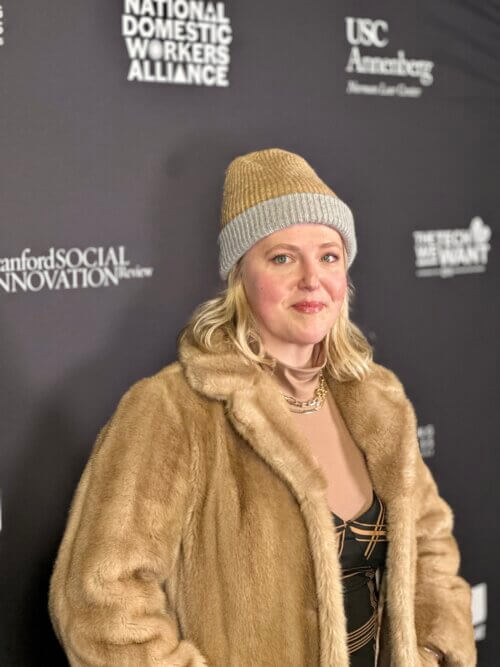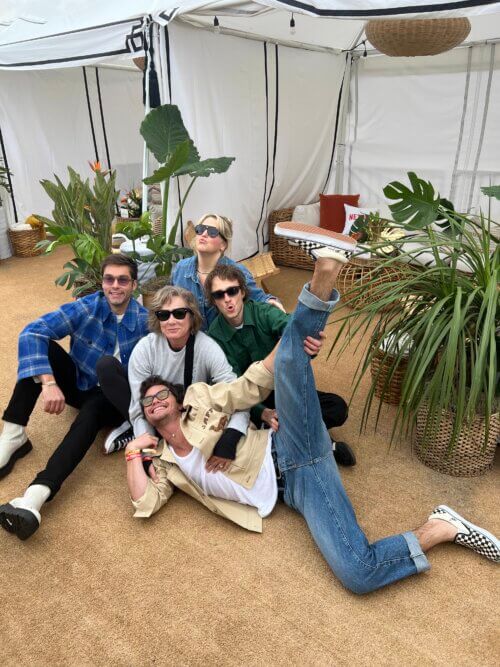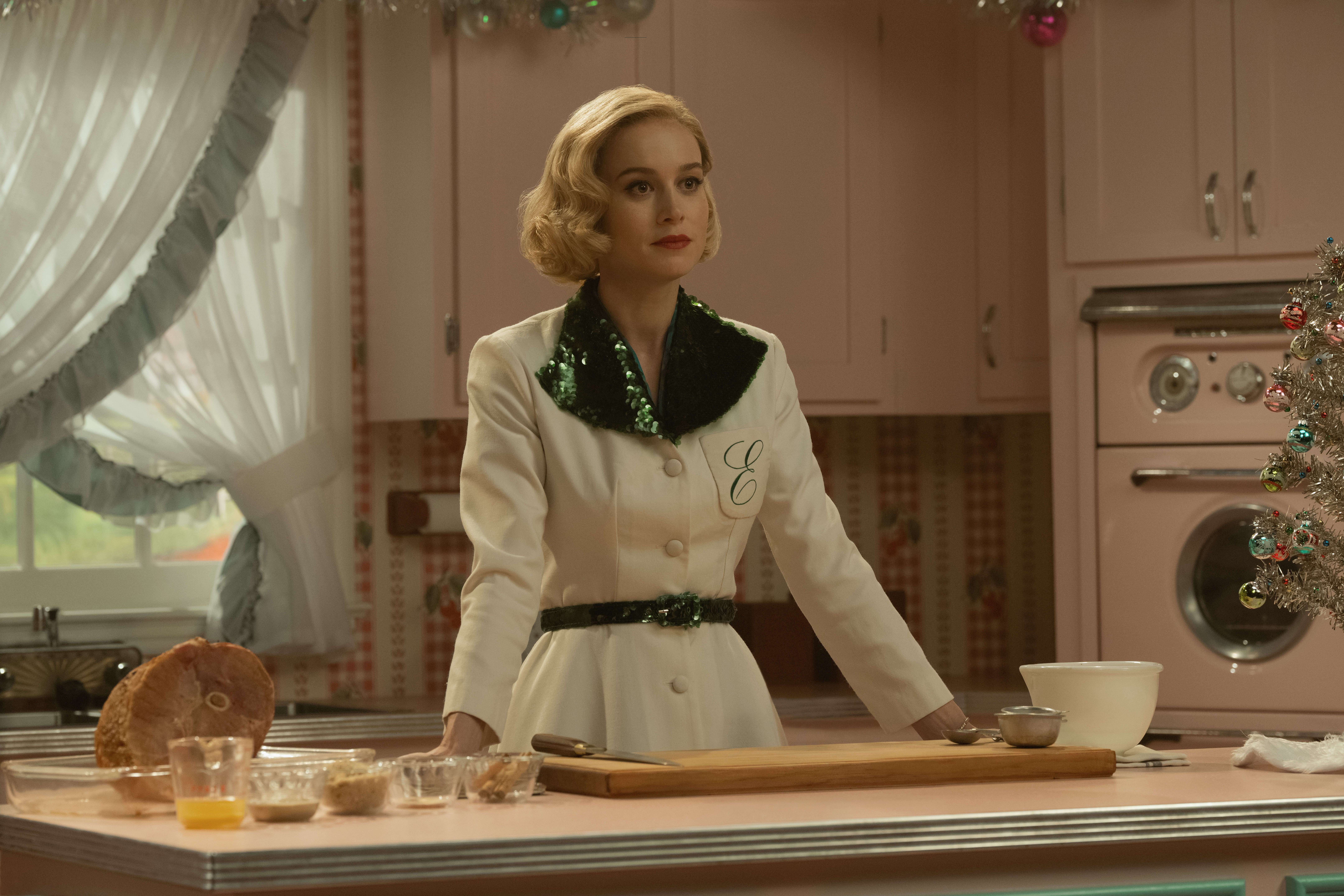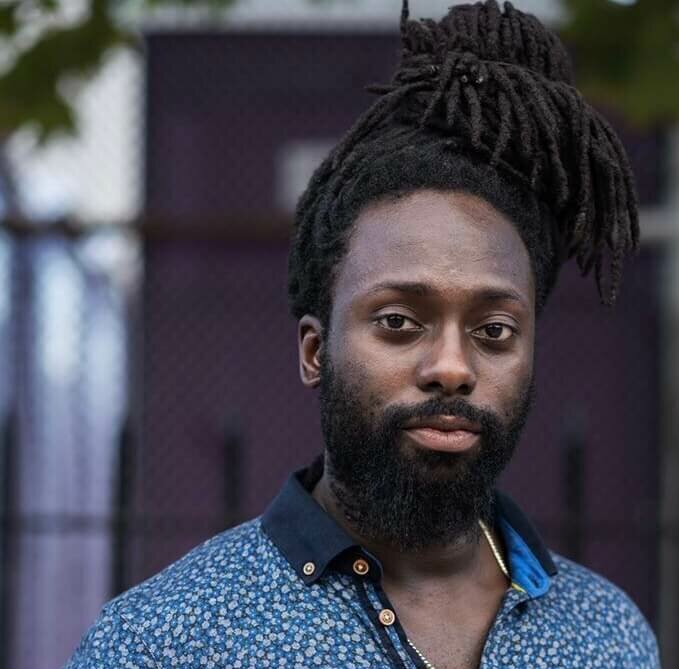Fincannon & Associates’ Kimberly Wistedt, CSA Talks Casting Netflix’s ‘Outer Banks’ and Atlanta’s Amazing Brunches
Kimberly Wistedt, CSA has always wanted to be in casting, whether she knew it or not. The Atlanta native started in stage management and got acclimated to the casting world through the tutelage of New York legends Tara Rubin and Bernard Telsey.
Fast forward to 2024, where she’s been crushing it with Fincannon & Associates for over a decade, while watching her home city blossom into a thriving production hub. The casting director took time out to discuss casting Netflix’s hit show Outer Banks top to bottom, her time in New York and of course, all things Atlanta.
Congratulations on the well-deserved Oscar category being added for casting. What did that feel like for you and your peers to finally get recognition from the Academy, and what was going through your mind when you got the news?
It’s been something that we’ve been seeking for quite some time. I think it was just difficult for us to understand why television was recognized and features weren’t. I feel like we’re moving ahead, moving forward, where casting is very much on the map. I think it’s something that now people talk about more than they used to. [With] all the work that we do with features, I’m glad that people are recognizing the collaboration and our hard work, and it feels like we’re really moving into a great space with casting.
You started in stage management at the University of Florida. How did that pull you into the casting world?
At that time in my life, I don’t think I knew that casting was a trajectory I could follow, but I always loved actors. I loved being in the room with the director and the audition process and hearing his thoughts, and every time a new actor would come in and [I’d be] seeing their read and how it could fit, it just lit me up. I was talking to a director about that, and he was like, “Well, maybe you should consider casting.” He connected me with some people up in New York, and that’s how the ball started rolling.
How has the stage management experience helped you as a casting director in general?
I think it’s definitely helped with blocking out my time accordingly. I think it’s helped with juggling the personalities of everyone involved in the production. With stage management, you very much do the same thing. You are pulling all of the pieces together for the production, and it also has this family environment and you get that with each production that you work on. It’s just balancing all of the pieces of the puzzle of a production that you see in stage management as well as in casting, because there’s so many different facets. Not only schedules, but also content. It’s just really logistics, logistics, logistics.
I don’t think that a lot of people realize that with casting, that so much of it is “Can we actually get the actor there on that day to do what they need to do?” Of course, auditioning is very much the more fun part of finding that match—that marriage, so to speak—with what the creators seek and what you present to them.
 Photo courtesy of Kimberly Wistedt, CSA.
Photo courtesy of Kimberly Wistedt, CSA.What was it like working with Tara Rubin and Bernie Telsey? How do you think those experiences prepared you for working at Fincannon & Associates and shaped the way that you work now?
I think what was so amazing about being in New York and working for these names that had been in the business for so long, and for something as historic and rooted as theater and musicals and Broadway, nothing makes you feel richer in the history of your industry and in casting, and it’s really what lit the fire. They’re just so highly respected and I’m truly, so grateful for that experience.
The Fincannons have also been rooted in the industry since the early 1980s. It’s interesting how I found myself with a company that had the same incredible reputation and history in the business coming from Tara Rubin and Bernie Telsey’s office. It prepared me for the hustle. It prepared me for building my own reputation within these offices that have incredible reputations on their own. I think my time in New York really showed me that this path is what lights me up and is just a perfect marriage of what I think that I am meant to do in terms of my skill set.
What was it like casting Outer Banks?
Outer Banks is so wonderful for our office, because we’re usually relegated to regional casting due to the location-specific part of the show and our relationship with the Pate Brothers. They wanted it to be so truly of the Southeast and so truly of Carolina kids. That show is such a milestone for us as a regional office to do it from top to bottom.
What was really amazing about casting Outer Banks is finding, I guess you could say, no-name talent at the time and building them into this empire of global phenomenon status. I say kids, but they’re not quite kids—finding young adults really from this region and bringing this story to life because everyone believed that they were kids from the Outer Banks. I think the authenticity of all of that and our market has always succeeded in that age range [with] those kids.
How much more intensive is the process when you’re going top to bottom versus a handful of specific roles?
In terms of the difference, I would say obviously workload. You have so many more characters to pay attention to [and] it’s all coming from you. Everything from the series regulars down to the one-line day player.
It’s also a very schedule-specific show in that we deal with a lot of locations and for some reason, we also shoot during hurricane season. There’s a lot of shifting around [and] it’s action-packed, so there’s a lot of changes. It really is such a whirlwind of a show.
It’s lots of hard work, but I wouldn’t change it for the world because I just feel like it’s really put our market on the map. It validated our office as casting anywhere is casting everywhere. Similarly to the actors that we cast. Just because we’re not in New York or LA, we still do the damn thing. I think it’s brought a lot of pride to our office.
 Kim Wistedt, CSA, Lisa Mae Fincannon and the cast of Outer Banks. Photo courtesy of Kimberly Wistedt, CSA.
Kim Wistedt, CSA, Lisa Mae Fincannon and the cast of Outer Banks. Photo courtesy of Kimberly Wistedt, CSA.What’s your experience been like, watching Atlanta blossom into the production powerhouse that it’s become, and how does that feel as an Atlanta native?
It’s so funny. I always thought that in order to pursue this path, I would have to settle in New York and LA. While those places are very sparkly and fun and certainly full of opportunity and history in the business, I just knew that neither one of those places could be somewhere that I could be long-term.
I have so much pride that I can be in a location where I have the same access to what drives me in terms of the projects and the stories, the studios and everyone involved. I can live in a place where I’m near family and friends, where it’s not this constant struggle to survive. I’m really thriving here. I do think that success is a multifaceted word. I think that of course, you can move to LA or New York and do everything that it takes for the business, but I think other parts of your life could suffer in that way.
I have so much pride for Atlanta, and it feels very kismet, I think, that it’s worked out this way for me and I’m grateful. I’d say over the past 10, 11 years here in the market, the way that it’s changed and grown, Atlanta is no longer a secondary location. It’s very much a primary location, and the market has become a lot more saturated.
In casting, what’s been so refreshing and so wonderful is just the caliber of the roles that we are looking for. We are very often working in tandem with the New York and LA offices that we work on with our series.
The trust that producers have in us and in our market, and in the talent that we bring has grown tremendously. We’ve gone from the one-line bellhop, on location, local talent to series regulars and major recurring guest stars. We still have a lot of work to do to sew up the gap there in treating Southeastern actors with just as much experience as an actor coming out of LA, but I think we’re really making a lot of headway. It’s been really cool to see that transition and for us to be just legitimized on all sides.
Atlanta is also a big food city. What’s your go-to local dish?
I wish I had some very classic Southern stance on this. We do have really, really amazing brunch places. There’s this place in Buckhead called Buttermilk Kitchen, and it is just like, everything that you could quintessentially want when you’re in a Southern town and you would want for breakfast, they have. It’s just impeccable. The wait is always outrageous.
I’d say Atlanta brunch is a total vibe, but also, cuisine that I really like is Mediterranean and Greek. I don’t know what it is about falafel, but I just love it. We have quite a handful of really amazing Mediterranean, Persian, Greek restaurants. There’s a place called Cafe Agora in Buckhead that I really love. Rumi’s Kitchen is amazing. There’s a new [Persian] restaurant called Yalda that has a couple of locations, [and] it’s really delicious.
Atlanta is incredibly diverse, [which] I don’t think a lot of people realize. I think I read a statistic one time that it was in the top five most culturally diverse cities in the U.S. It’s a really bustling city, but they say it’s the city in the forest.
I think that’s why Atlanta is so great for this industry and also for industry professionals, because you get the balance of city life, hustle and bustle, skyscrapers, restaurants, amazing hotels and experiences, concerts, the whole shebang. You also get a calming forest vibe. You get hikes. The Blue Ridge Mountains are just an hour away. You don’t really feel all-consumed by city life. Lots of beautiful, sprawling neighborhoods and homes and all four seasons. Who can’t love that?
What’s some audition advice you could share?
For me, there’s many things, and each casting person always has their do’s and don’ts. One that I go back to is reading as if you have the role. I think it strips away this level of desperation of like, “Oh my gosh, I just want this role so bad.” Believe it or not, we can sense that energy on the other side. I think it also creates this level of play where you don’t feel like you have to marry yourself to some expectation like, “Is this what they need? Is this what they want to see?”
It allows you this room for discovery, for truly listening. I always like to say, “Pretend as if you have it and you’re on-set and you’re doing the thing.” I always like to say to find your environment and your business in the scene. I think that pretending that you have it and you’re on-set helps inform that as well, because you can see where you are [in that] place in time. Also, I love little tidbits, just imagining your head space in the moment before this scene happens.
Overall, just do it as if you have it, and it’s really incredible to see how much more fun it is for us to watch, and just how much more magic happens from the moment you press play.
Casting directors use Casting Networks every day to discover people like you. Sign up or log in today to get one step closer to your next role.
You may also like:
- What’s Casting: Frankincense & Myrrh, Tech Brand Campaign, Major Skincare Brand Commercial
- Cristiana Dell’Anna Shares How Martin Scorsese and Three Self Tapes Helped Her Land the Starring Role in ‘Cabrini’
- Success Story: How Stephen Pollak Uses Role Tracker to A/B Test His Casting Networks Wins
Chris Butera is a voice actor specializing in commercial, eLearning and corporate narration reads. When he’s not helping clients achieve their goals, he's playing guitar and bass.




